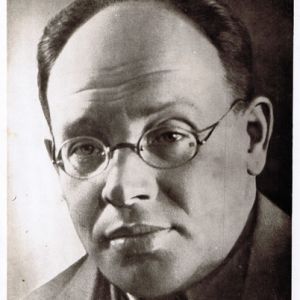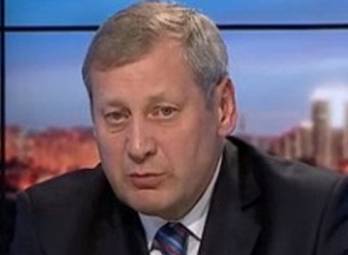Normally telling uncorroborated tales is not something that sits particularly comfortably with this blog. However there is an uncorroborated but interesting tale being told quite openly amongst the hierarchy in certain nefarious circles. The names have not been changed to protect the innocent (or perhaps guilty) in this tale, though due warning is given regarding the credence that may be drawn from it. Readers may believe or disbelieve it. There is certainly no proof that substantiates (certain parts of) the story – those parts will be made perfectly clear and inference may be drawn – or not.

Issac Babel
The tale is being repeated here because it is so wonderfully/typically nefariously “Odessa” – the prose however being nowhere near as accomplished as those of Issac Babel in his equally nefarious book, Tales from Odessa.
So to a suitable starting point – In 1995 Leonid Lebedev (associated with Russian organised crime as well as being a Russian politician) became the chairman of Sintez Group – a small Russian commodities concern that had a grubby and somewhat opaque little deal with various majors through the years – Rosneft, Luk Oil etc. In 1995 the company was turning over about 15 million tonnes of heating, diesel oil and gasoline. His business partners were/are Mark Garber and Alexander Zhukov. (Mr Zhukov is the father of Daria Zhukova – who is now the wife of Roman Abramovich).
Mr Zhukov was/is in charge of Sintez production, pipeline transport, and export through Odessa Port (having 7 berths at terminal 10).
(As is oft the case with organised crime there are hiccups along the way. In one such hiccup, Messrs Lebedev, Garber and Zhukov, together with Kuzma Medanich, Andrey Vazhnik, and Anatoliy Fedorenko had a bit of a run-in with Italian law enforcement in 2002/03 over gun trafficking. A small matter of Kalashnikov’s, guided missiles, anti-tank missiles and ammunition headed for the Balkans. Eventually the case collapsed due to lack of evidence with only Dmitry Streshinsky getting convicted and receiving a 23 month suspended prison sentence and a fine.)
However, amongst many subsidiaries of Sintez Group was/is Sintez Oil Ltd run by Mr Zhukov (naturally being a partner in Sintez Group) and which has a large and allegedly controlling nefarious footprint in the Odessa ports. The long-reigning Odessa mafia Don, Alexander Angert is also associated with Sintez Oil via a subsidiary called Transcargo. Unsurprisingly Mayor Trukhanov also worked for Sintez Oil for some time – not withstanding his association with Mr Angert during the crazy days of the 1990s when working together in “Captain Security”.
Also associated with Captain Security, and Messrs Angert and Trukhanov back in the day was Ruslan Bodelan, a long time Chair of the Odessa City Council whom it is claimed, transfered the City accounts to the Sea Commercial Bank of Odessa – coincidently owned by the same Mr Zhurkov of Sintez Oil. There is then Mr Angert’s ROST Group of companies, well known to Mayor Trukhanov by his own admission, and a company extremely successful in winning City contracts. There is no need to go on and on, describing yet more and more connections between these people – and there are many – after all, why wouldn’t friends and trusted associates do business together (through a lot of different companies)?
Much has been said in the local media regarding Mr Trukhanov’s electoral rival for mayor, Sasha Borovik, and in particular his KGB history and also the KGB history of his father Valeriy – yet it is also no secret that Valeriy Borovik was Head of Security at Sintez Oil in Odessa too. Thus when running against Gennady Trukhanov his father will have been well aware of his son’s opponent and the interests of those behind Mr Trukhanov – notwithstanding the undoubted access to voluminous tomes relating to Messrs Angert, Trukhanov and Zhurkov gathering dust in SBU storage that will have provided some “light reading” for Mr Borovik during his election preparation.
However as has been previously written here numerous times during the months preceding the local elections elections last week, it has been quite clear, and long and consistently rumoured amongst those that would know, that the presidential administration/The Bankova, probably in the person of Boris Lozhkin, had cut a deal with Gennady Trukhanov relating to his victory and few waves for existing nefarious enterprises (Sintez amongst others) in return for both his and his party’s voting loyalty in line with Solidarity policy.
In short, Mr Turkhanov was seemingly the only choice for Mayor that could satisfy all vested political and organised crime interests. A deal there was to be made – and it was made.
This deal clearly struck before Sasha Borovik decided to run – for he was late to the electoral fray.
Whether Mr Borovik was aware of this deal before he decided to run as the Solidarity candidate or not is really rather irrelevant. If he wasn’t aware, then such a deal must have clearly dawned on him rather rapidly in the absence of any Solidarity Party support beyond being able to use the brand name.

Considering Mr Borovik’s KGB schooling, a healthy degree of cynicism would be a rather desirable character trait – and such cynicism would quickly point to deals being done that would effect and insure campaign outcomes. Cynicism teaches ye that would sup with the devil to do so with a long-handled spoon.
That said, Mr Borovik did well in the elections – his 25 – 30% support is truly impressive considering a late entry, stuttering campaign at the start, and no support from “party central” excepting the use of brand name, and only the overt support of Governor Saakashvili as external pulling power.
So where does Governor Saakashvili sit in all this?
Was he too was unaware of any “Bankova deal”?
If not then he must also have rapidly become aware of the “Bankova deal” that would have insured Trukhanov’s political loyalty in return for his steady hand in managing/protecting the allegedly nefarious interests of Messrs Angert, Zhurkov and himself.
(He must also have been aware that it was an immense task for his advisor Sasha Borovik to topple a well established Trukhanov voter base, “Bankova deal” or otherwise.)
Once such awareness reached the Governor, it is claimed, he was concerned that first and foremost the elections were seen to be clean and not “stolen” or “overly rigged” on his watch. If that meant a second round and “his man” running Mayor Trukhanov a close second then so be it. There is no perceived disgrace in a close second round loss and there are reputation points in public perception in managing a far fairer race than those normally associated with the politics of Odessa.
The rumour goes that such a deal was struck for a “clean vote”.
Perhaps true – perhaps not.
Governor Saakshvili, when he saw “his man” had momentum may have seen a possible win where none was originally expected. Having the Mayor in his stable would have changed the game – both in Odessa and for The Bankova which has political interests of its own that may require putting parameters upon the ambition of Governor Saakashvili.
Likewise there may have been some “nervous twitching” from all other parties involved in the nefariously agreed “Bankova deal” when secret polling surveys showed Borovik momentum, and thus forced the decision to go “dirty” and “finish it” in a single round in order to “protect longstanding interests”.
If so, then it is one way to explain the immediate open media warfare that began on election night between the Governor and Kyiv, the Governor and Mr Angert, the Governor and Mr Trukhanov and the clear decision to start “taking down” the City Hall apparatchiks that have long plundered the budget and who surround the Mayor. (The Mayor is not one for stealing trifling amounts from budget headers himself – big money from nefariously awarded contracts is more his style.)
This targeting of corrupt City Hall appartachiks started with those involved in roads maintenance and water utilities the day following the elections day and is a policy that will continue – as it should simply from a rule of law perspective.
Nevertheless, if this tale is to be believed, then clearly Governor Saakashvili will feel he has been on the wrong end of a broken agreement. All bets therefore are off (until he is pacified or revenge is exacted – or both).
As importantly he will feel he has had his image tarnished due to grubby elections on his watch. Loyal to his friend President Poroshenko, but never keen on his Solidarity Party (the Governor has not joined Solidarity), this allegedly broken deal has also seen what appears to be the launch of “Team Saakashvili” as a political entity quite separate from the main body of Solidarity – and “Team Saakashvili” should it become a formal political party will easily garner 5% of the vote nationally to enter the Verkhovna Rada when any elections come. Bad news for Solidarity, though not necessarily bad news for President Poroshenko whom Mr Saakashvili would support.
Whatever the case Governor Saakashvili will remain in Odessa until the New Year and the formal launch of any political party with him as leader is unlikely before New Year (unless somebody is perceived to “shaft him” again, forcing the issue).
Thus war has seemingly been declared on all fronts by the Governor if his public rhetoric is any indication – wisely or not remains to be seen – however, on the presumption that Mr Borovik accepts his mandate to City Hall, and whether or not he becomes the Secretary to the Council (the second most powerful position), then Mr Borovik is clearly going to be a royal pain in the arse for that administrative cesspit – forcing audits, transparency, calling out dodgey deals, leaking questionable documents etc, whilst the Governor pushes the prosecutors office to continue taking down those surrounding Mayor Trukhanov for their corrupt activities past and present.
Strikingly however, considering it is certainly a significant jewel in the Odessa Port mafia crown, there has been no mention by anybody of the widely inferred odious influence and activities of Sintez Oil – which depending upon how this uncorroborated tale in interpreted, places a fairly central role.
A tale perhaps not as romanticised as those deeds recorded by Issac Babel, and certainly not written in such glorious prose – but nonetheless a tale that is so entirely “Odessa”. The reader can decide if it is a tale worthy of those of Issac Babel, or should it be given any credence, a tale worthy of a courtroom. Questions then of who should stand in the dock and who should bare witness in such a grubby affair?
Nevertheless, a tale worth telling. Perhaps a little more credence will come when Trukhanov and his Trust Affairs party start consistently voting along the Solidarity Party policy line – which will be the case.








